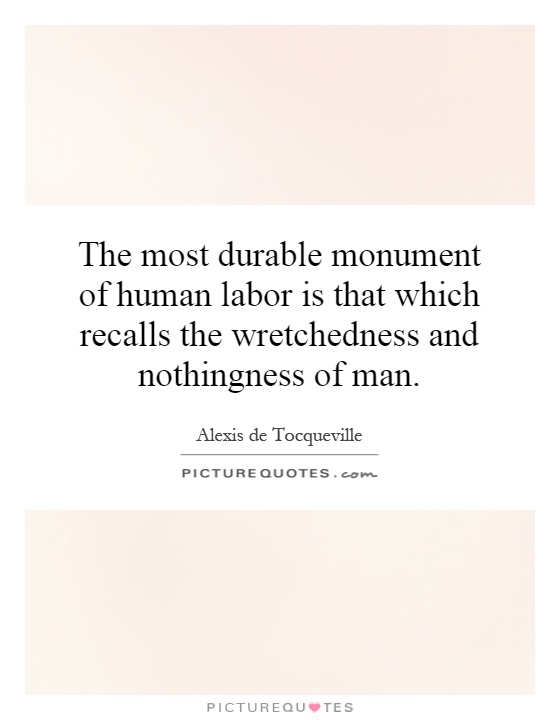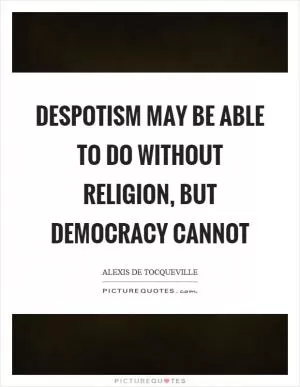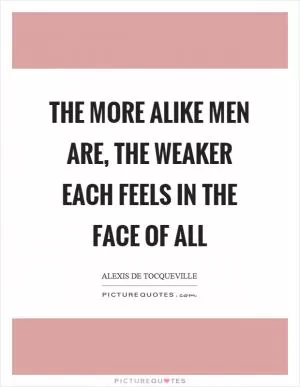The most durable monument of human labor is that which recalls the wretchedness and nothingness of man

The most durable monument of human labor is that which recalls the wretchedness and nothingness of man
Alexis de Tocqueville, a French political thinker and historian, is best known for his work "Democracy in America," in which he explores the nature of democracy and the effects of equality on society. Tocqueville was deeply interested in the relationship between individuals and the state, and he believed that the most durable monument of human labor is that which recalls the wretchedness and nothingness of man.Tocqueville's belief in the wretchedness and nothingness of man can be seen in his analysis of the American political system. He observed that in a democracy, individuals are equal in the eyes of the law, but this equality can lead to a sense of mediocrity and conformity. Tocqueville argued that in a democratic society, individuals are more likely to be driven by their own self-interest and desires, rather than a sense of duty or responsibility to the common good. This can lead to a sense of wretchedness, as individuals may feel disconnected from their fellow citizens and the larger society.
Tocqueville also believed that the pursuit of material wealth and success could lead to a sense of nothingness. In a democratic society, individuals are free to pursue their own interests and ambitions, but this freedom can also lead to a sense of emptiness and alienation. Tocqueville argued that the relentless pursuit of material wealth and success could ultimately leave individuals feeling unfulfilled and disconnected from the deeper values and meanings of life.












 Friendship Quotes
Friendship Quotes Love Quotes
Love Quotes Life Quotes
Life Quotes Funny Quotes
Funny Quotes Motivational Quotes
Motivational Quotes Inspirational Quotes
Inspirational Quotes